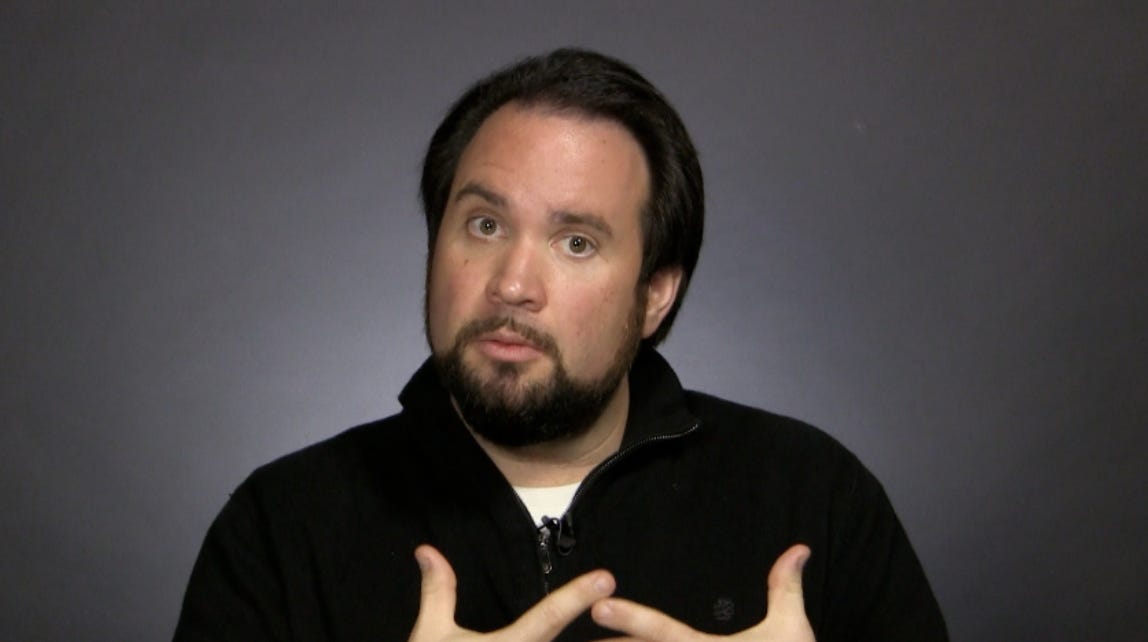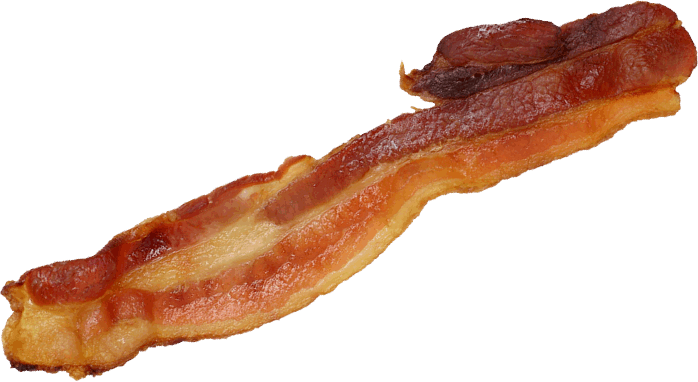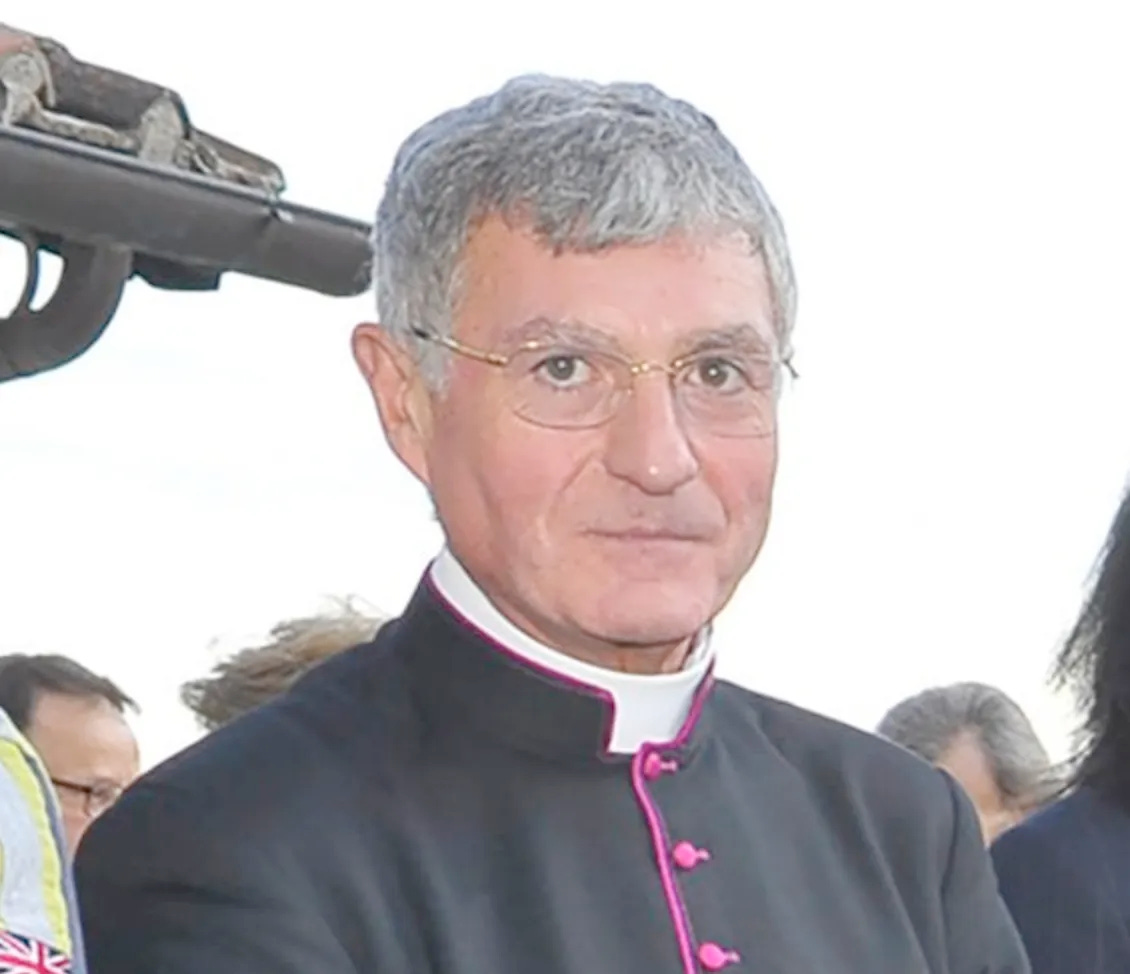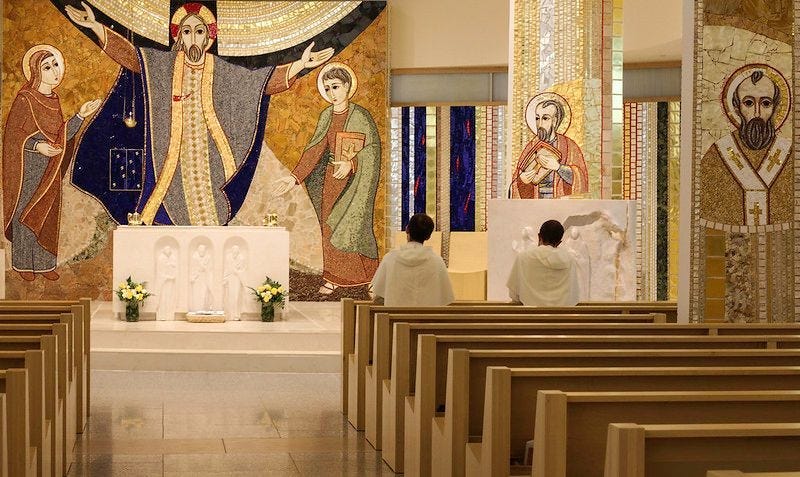Advocacy group PETA, the People for the Ethical Treatment of Animals, celebrates the fourth Saturday in September as “Fish Amnesty Day” — a day when the organization suggests that fish are friends, not food.
At The Pillar, we reached out to Fordham University moral theologian Charlie Camosy to get his take on the occasion, which falls this year on Sept. 25.
We contacted Camosy because we thought he was a vegan. But it turns out we we were wrong.
Camosy won’t be celebrating “Fish Amnesty Day” because, well, he eats fish. But there is a lot of meat Camosy doesn’t eat, and his reasons, he says, are grounded squarely in Catholic moral tradition.
He talked with us about animals and their dignity. And he dared us to try something called “vegan sausage.” We probably won’t.
This conversation has been edited for length and clarity.
Charlie Camosy, you're a vegan, right? Why would anyone do that?
Reports of my fidelity to that way of being in the world have been greatly exaggerated!
I am actually the lowest of the low on the veggie totem pole: I'm a pescatarian who eats eggs and fish.
I make a more complete case for this in my book “For Love of Animals: Christian Ethics, Consistent Action,” but my main concern is the issue of justice for animals who are brutally tortured and killed in factory farms. The Catechism of the Catholic Church claims that we “owe [animals] kindness,” and I take that seriously.
In a related story (especially if one takes Pope Benedict's broad ecological vision seriously), I am concerned about the absolute ecological disaster of factory farms; they are the most important contributors to global climate change.
I try to eat animal products from animals who have been treated well.
Fish...well...that's a weakness of mine, I suppose. But, as I detail in the book, there is the theological reality of Jesus eating fish. And, Jesus is not depicted eating meat, even in places where meat would be expected to be mentioned, like the Last Supper, or the many parties and wedding feasts at which he appeared.
But I like meat, Charlie. Doesn't everyone like meat?
I like meat.
I find people who don't like meat to be a little strange, frankly. But living out a holy life means that we deny ourselves things that we like or want or crave sometimes.
Our brothers over in the Orthodox Christian traditions deny themselves meat, and all other animal products, on both Wednesday and Fridays. And everyone in the Catholic Church used to abstain from meat every single Friday — we are actually still asked to do that, or to make some other sacrifice in place of it.
Denying ourselves the things we like — for good reasons, of course — is just what it means to be a good and healthy person. And self-denial is a central part of what it means to be a Christian.
Are you arguing that animals have the same rights as people? Isn't that contrary to the Christian worldview? Don't we have 'dominion' over animals?
Oh, I'm not arguing that animals have the same rights as people. Not at all.
Even a philosopher like Peter Singer, who basically founded the animal rights movement in the West, thinks that if you are a starving person in the forest, you have the right to kill a wild boar to save your life.
The question, for me, is about being consistent in thinking about the value that animals do have. Are animals the kinds of creatures that we can use as mere tools? Are animals akin to hammers and pencils?
If animals are tools, it is difficult to see why Michael Vick went to prison for running a dog fighting ring. But if animals are more than things, we have to admit that we can't use them however we want, just for our pleasure, or for economic efficiency.
The Church’s teaching that we owe animals kindness implies that they are the kind of metaphysical beings which demands serious moral and ethical reflection and action.
And yes, we do have dominion over animals. But, to use an overused phrase, that doesn't mean what people think it means.
We are the stewards of God's creation until Christ comes again. We live into the already-but-not-yet reality of the Kingdom of God, witnessing in some sense to that Peaceable Kingdom through the way we live our lives.
Yes, there is sin and yes, the Kingdom has not arrived in its fullness, but Our Lord’s commands — like “love your enemies” — often seem to indicate that we are to be peacemakers in ways that seem foolish when viewed through the lens of the world’s wisdom.
We reject the violence of abortion. We reject the violence of euthanasia and assisted suicide. Catholic just war and just policing doctrines radically curtail violence.
But what does it mean to witness to a Peaceable Kingdom when it comes to non-human animals? Animals which share the breath of life with us? Animals which were created on the same day of Creation as us? Animals which — in Genesis 9 — God gives us only grudging permission to eat, and even then with significant restrictions?
Honest people can disagree about the answers to those questions. But, at the very least, I hope we can agree that participation in the torture of animals in factory farms should be avoided.
Charlie, I am aware of salad, and nuts. But vegetarians must eat other things, too. What are they? And doesn't that kind of diet take a lot of time?
The food is actually really good now, though I'm not really a “foodie” and I actually worry about the idolatrous way we can think about the kind of food some of us imagine that we need to have in our lives, especially when it comes to expense.
An Impossible Whopper at Burger King tastes basically the same as a traditional Whopper and costs only a bit more. Vegan burgers in the grocery store are seriously good. I challenge you and others to try them out on the grill and season them well. They're really terrific.
Try field roast and other vegan sausages, too — they’re just really good. And there are some vegetarian “chicken” nuggets (they use eggs) which are also pretty good as well.
I like things like flavored almond milk now better than actual milk. You can spend a little bit extra to get cage-free eggs, too.
Plus, buying local is important for all kinds of reasons, animal welfare not least of them. Knowing the farmer goes a long way, and we really need to support small farmers who try to treat their animals with kindness.
The worst thing to happen to animals over the last few decades is the rise of huge factory farms which think of animals as “protein units per square foot” instead of the living creatures of God.
By the way, those “protein units” are now bred to have no feeling of being full, or being satisfied, so that they eat as much and as quickly as possible. These poor creatures don't ever get to feel, even once, the modest relief of a full stomach.
I'm probably not going to become a vegetarian or a vegan. For people like me, are there less monumental steps that could be taken towards the good ends you're talking about?
Can we go back to meatless Fridays? What about meeting the challenge of Orthodox Christians and adding Wednesdays? What about all of Lent? The secular tradition of “meatless Mondays” could also be embraced. Suddenly we could cut our input in half. And that would cut our participation in global climate change way down as well.
Charlie, do you ever sneak a piece of bacon? We won't tell.
Based on the advice of counsel, I refuse to answer this question.





